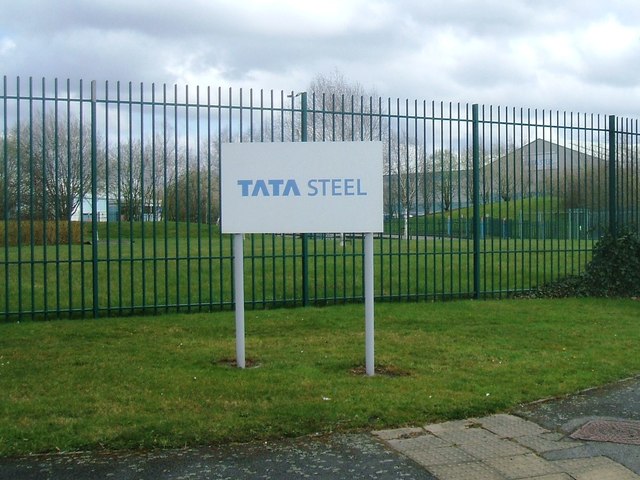Tata Steel UK Announces Closure of Blast Furnaces to Modernize Production
Tata Steel UK confirms closure of 2 blast furnaces and transitions to an electric furnace at Port Talbot. The investment aims to preserve 5,000 jobs and reduce emissions, with support from the UK government. The company rejects union proposals, citing risks and delays. Unions warn of job losses and plan potential industrial action.

- Country:
- United Kingdom
Tata Steel UK on Thursday confirmed its decision to proceed with the closure of two old blast furnaces as part of a GBP 1.25-billion investment to transition to a state-of-the-art Electric Arc Furnace at its Port Talbot steelworks in south Wales.
Since the plan was announced earlier this year, the Mumbai-headquartered steel major said it had held seven months of formal and informal discussions with the UK trade unions about the major transformation which preserves 5,000 jobs and secures future steel supplies. It is also expected to create more indirect jobs in engineering and construction and reduce CO2 emissions by 5 million tonnes each year.
“Tata Steel’s decision to move to greener steelmaking in Port Talbot is one that has been made by the company alone. The UK government is acting to support steelmaking in Wales and to safeguard its future,” reads a statement from the UK government statement, which had pledged GBP 500 million in a deal with Tata Steel UK last year.
It said a joint Transition Board will help affected workers and stressed that without the deal with Tata all the jobs would have been lost at Port Talbot.
''Having looked carefully at all the options over the past seven months in consultation with union representatives, we have decided to proceed with our proposed restructuring and transition,” said Tata Steel’s CEO and Managing Director T.V. Narendran.
“This is the most viable proposal, in contrast to the unions’ unaffordable plan which has high inherent operational and safety risk. Our proposal secures a long-term future for the business and preserves the majority of jobs in the UK,” he said.
Narendran said the company will continue to work with the trade unions over the following two weeks to agree a memorandum of understanding on the future of the UK business and the impact on our people.
The company said the unions’ proposal to maintain one blast furnace through the transition would have incurred at least GBP 1.6 billion of additional costs, including higher operating costs and higher capital expenditure, created significant operational and safety risk, and put the business’s future continuity in jeopardy. During the consultation process, Tata Steel said it revised its original proposal, agreeing to continue to operate the Hot Strip Mill through the transition period. The company also reached alignment with the UK Steel Committee that production on the coke ovens and one blast furnace needed to cease by mid-2024.
''We have spent the last seven months openly and transparently sharing detailed business information, asset condition, maintenance plans and market forecasts with our trade union colleagues and advisers. While we have agreed to keep the Hot Strip Mill running through the transition, the unions’ plan presents significant financial, operational and safety challenges, and delays the transition to green steel by two years. We have concluded that it is not feasible to accept their plan, and it is not affordable,” said Tata Steel UK CEO Rajesh Nair.
Now, a ''Voluntary Redundancy Aspiration'' process will be launched across Tata Steel UK from May 15 and preparations have already begun to place equipment orders for the Electric Arc Furnace by September 2024, begin enabling and preparatory works at the site by December 2024, with construction on the project expected by August 2025.
The company said it has explained to the UK Steel Committee representatives who visited the site that building a new electric arc furnace while continuing to operate the existing steel melting shop is high-risk and complex and will delay the transition by two years.
Consequently, the company will proceed with its proposal in which Port Talbot’s two blast furnaces, known as No.5 and No.4, will close by the end of June and latest by the end of September, respectively. Following the closure of Blast Furnace No. 4, the remaining heavy end assets will wind down, and the Continuous Annealing Processing Line will close in March 2025.
The steelworkers’ unions have warned of a fight ahead over the expected 2,800 job losses. While Unite union members already voted in favour of industrial action earlier this month, members of Community and the GMB unions are being balloted on whether to walk out over the plans.
“It's incredibly disappointing that Tata have chosen to reject the multi-union plan, which is an ambitious and viable alternative to their destructive bad deal for steel,” said Community general secretary Roy Rickhuss.
''We do not accept the company's assertion our plan was too expensive… Tata have made their decision, and our members will decide on our collective response,” he said.
(This story has not been edited by Devdiscourse staff and is auto-generated from a syndicated feed.)










